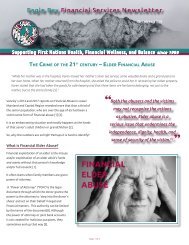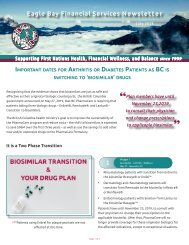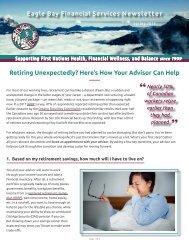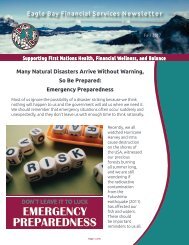Inclusion In The Workplace
Inclusivity is very essential in our lives: without it, we are vulnerable to having poor mental health and experiencing feelings of loneliness and isolation. Our healthy self-worth and self-esteem are tied to feeling included in a group or community. When we experience exclusion, especially at social entities like workplace, we tend to feel sad, unmotivated, depressed and we underperform. Therefore, employers should embed inclusive leadership into their business strategy, taking care of the health and wellbeing of their employees.
Inclusivity is very essential in our lives: without it, we are vulnerable to having poor mental health and experiencing feelings of loneliness and isolation.
Our healthy self-worth and self-esteem are tied to feeling included in a group or community. When we experience exclusion, especially at social entities like workplace, we tend to feel sad, unmotivated, depressed and we underperform. Therefore, employers should embed inclusive leadership into their business strategy, taking care of the health and wellbeing of their employees.
Create successful ePaper yourself
Turn your PDF publications into a flip-book with our unique Google optimized e-Paper software.
Eagle Bay Financial Services Newsletter
Spring 2022
Serving Indigenous Communities & Organizations since 2002
Inclusion In The Workplace
As social beings, we experience the need to feel included and an accepted member in a group. Inclusivity is very essential in our
lives: without it, we are vulnerable to having poor mental health and experiencing feelings of loneliness and isolation.
Our healthy self-worth and self-esteem are tied to feeling included in a group or community. When we feel like we don’t belong
anywhere, it can lead to stress, anxiety, and depression.
Let’s First Define Inclusion & Belongingness…
The sense of belonging is defined as experiencing the feeling of being accepted for authentic self and the feeling of being included
in social circles. Inclusion is defined as the practice of providing equal opportunities and resources for people who might otherwise
be excluded or marginalized.
Inclusivity & Our Health
Studies show that social environment profoundly
shapes our personalities and impacts our health.
We tend to suffer when our social bonds are
threatened or severed. Particularly, our mental and
emotional health are at risk the most when we feel
we are being excluded. Let us take the workplace
environment as an example of social environment.
We spend a minimum of eight hours a day at our
workplaces, interacting and communicating with
colleagues, managers and clients (both in person
and virtually). Experiencing the need to be heard,
seen and recognized in that small (or big) community
is essential to make us feel we are part of that
community (we belong to that community).
A study in this field was conducted to uncover how employed adults define belonging and what makes them feel like they belong at
work and what makes them feel excluded in the workplace. The study data was categorized per generations: millennials, Gen Xers, &
Baby Boomers.
Page 1 of 4
Eagle Bay Financial Services Newsletter
Spring 2022
Serving Indigenous Communities & Organizations since 2002
When excluded, 38% of millennial respondents felt
they are being ignored, 30% of them felt stressed,
and 34% felt lonely. ,
Whereas for Gen Xers, when feeling excluded, 41%
of them felt ignored, 27% felt stressed, and 26%
experienced the feeling of sadness.
Meanwhile, for baby boomers, when excluded at
work, 45% of them feel ignored, 26% feel angry, 21%
feel stressed, and 21% feel lonely.
The numbers and the feelings varied from one generation to another but mostly all have indicated feeling stressed, anxious,
sad or ignored at some level.
Inclusivity & Language
We use languages to communicate with each other and establish relationships. Choosing to use inclusive language with
people you communicate with will means that you are less likely to make someone feel like they don’t belong. Train yourself to
become more conscious of your language and the expression you use around others. It is important to remember that words
have strong impact on others and when used carelessly, can deeply hurt people; leaving an impact that might not be easily
forgotten.
Is exclusion considered a form of
bullying?
Yes! For many people, it is considered
bullying. According to recent study
conducted for young, employed adults, 54%
of respondents believed that exclusion is a
form of bullying at work. Meanwhile, 68%
of employees that are part of the LGBTQ
community believe that exclusion is a form of
bullying. Whereas, for women participants,
the majority believed that exclusion is a form
of bullying in the workplace.
Here are six tips to consider as you try to use more inclusive language in
your speech:
• Don’t complain about or express that you are struggling to be
inclusive.
• Don’t over apologize if you make a mistake. Your apology
forces the other person to discount their feelings to make
you feel better.
• When someone corrects you, acknowledge them with thanks.
• Reinforce your learning when you need to make a correction
by practicing the correct approach three times.
• Consider meeting up with someone else who is working on
using inclusive language to practice.
• If you observe a mistake, offer a quick correction. It helps the person become more aware, demonstrates respect
and commitment and shows empathy and understanding.
Page 2 of 4
Eagle Bay Financial Services Newsletter
Spring 2022
Serving Indigenous Communities & Organizations since 2002
Inclusivity in the workplace
Being inclusive starts with little everyday things. For example, the choice of words you choose and how you interact in social
settings. People can determine if you are being authentically inclusive or pretending to be.
For managers who aim to build an inclusive environment for their employees, start by making them feel heard, valued and
recognized for their effort and unique abilities. Ultimately, when inclusivity exists in a workplace, organizations can experience
game-changing insights, super-charged creativity and attract the most talented people to join a group of happy and satisfied
employees.
Inclusivity for Indigenous Employees
A recent survey was conducted to explore the representation of
Indigenous People in workplaces, indicated that indigenous employees
are in fact underrepresented. When surveyed, participants responded
that they often feel isolated at their workplaces due to the lack of
Indigenous role models at senior levels. Additionally, the survey showed
that Indigenous employees experience low levels of psychological safety
at their workplace and also pay what is called an “emotional tax”.
What is Emotional Tax?
"Emotional Tax is the combination of feeling
different from peers at work because of
gender, race, and/or ethnicity and the
associated effects on health, well-being, and
ability to thrive at work”
Eighty-two Indigenous employees were surveyed (both men and women) working for different industries and job levels, and
responded to the survey as follows:
• Fifty- two percent of them said that they are regularly on guard to the experience of bias, a hallmark of “emotional tax”.
Sixty-seven percent of Indigenous women experience the feeling more commonly than Indigenous men (38%) which reflect
the disproportionate discrimination and violence they experience compared to other groups.
• Sixty-one percent of Indigenous People surveyed indicated that they do not feel physiologically safe at work. Low
psychological safety reflects on employees’ feelings of belonging and impact their job performance directly.
In comparison with Indigenous employees who experience low levels of psychological safety, we found that those who experience
high psychological safety are five times more likely to have a sense of belonging to their workplaces, over five times more likely to
experience being valued for their uniqueness, twice as likely to speak up when something is not right, twice as likely to report taskfocus,
and twice as likely to report being able to exhibit creativity.
Page 3 of 4
Eagle Bay Financial Services Newsletter
Spring 2022
Serving Indigenous Communities & Organizations since 2002
Inclusive Leadership
Creating an inclusive workplace could be a challenging mission to
accomplish when the right strategies and practices are not applied.
In order to create an inclusive environment for employees, inclusive
leadership should be practiced.
For managers who are aiming to create an inclusive workplace for
your employees, studies recommend practicing three important
behaviours: empowerment, accountability, & humility. When applied
appropriately, you will build teams that feel valued, appreciated, and
recognized for their efforts.
Here is a list of recommendations when practicing the three behaviors:
Empowerment
• Ensure that all team members have what they need to succeed and flourish at work and that they can bring their full
selves to work by expressing and sharing their cultures.
• Be a role model of your actions. Model your own learning, vulnerabilities and challenges related to tacking inequities and
moving out of your comfort zone.
Accountability
• Hold all team members responsible for their behaviours, development and work processes.
• Openly discuss how to demonstrate that a wide variety of perspectives, identities and cultures are valued.
Humility
• Practice humble listening by setting aside preconceived notions of how the world works, and truly hear what another
person’s experience of the world is like.
• Be willing to admit your mistakes; find grace for coworkers to make mistakes and take risks without being penalized.
For the full list of recommendations, click Here
Our social interactions can heavily impact our emotional wellbeing. When we experience exclusion, especially at social entities
like workplace, we tend to feel sad, unmotivated, depressed and we underperform. Therefore, employers should embed inclusive
leadership into their business strategy, taking care of the health and wellbeing of their employees.
References
[1] Catalyst, "Buidling Inclusion For Indigenous Peoples In Canadian Workplaces" , http://ow.ly/z9U450J3hNh
[2] Better Up, “Here's how to build a sense of belonging in the workplace", http://ow.ly/BC7O50J3hSI
[3] Catalyst, “Day-to-Day Experiences of Emotional Tax Among Woment and Men of Color in the Workplace”, http://ow.ly/SHGv50J3iEm
[4] Harvard Business Review, “The Value of Belonging at Work”, http://ow.ly/FNL650J3iKM
Page 4 of 4
Eagle Bay Financial Services Newsletter
Spring 2022
Serving Indigenous Communities & Organizations since 2002
Mina Dingle
Account Manager - Licensed Professional Advisor, Group Benefits
Mina is committed to providing the best service and present professionalism. She is driven to learn and understand Indigenous
Cultures. She is willing to go over above and beyond expectations to provide quality service to Indigenous Communities and
organizations. She also provides a positive outlook and motivating her colleagues to do the same, and provides support and
assistance to co-workers when needed.
When she’s not at work, Mina enjoys reading, meditating, exercising, and loving outdoor activities such as running and hiking. She is
a wife and a mother of three beautiful children.
Questions?
Don’t hesitate
to contact us.
Group Benefits Questions
Kelsi- Rae
kelsi@eaglefinancial.ca
Group Retirement Questions
Rita
rita@eaglefinancial.ca
Marketing & Promotions
Yusur
msma@eaglefinancial.ca
About Eagle Bay Financial Services Ltd.
Eagle Bay Financial Services Ltd. is an aboriginally owned and operated independent advisor agency located in BC. We specialize
in First Nations Benefits and Retirement plans and offer customized plans that meet your needs and budget. We represent your
best interest with all of Canada’s leading insurers and retirement providers. You have a choice in who represents you.
Call us at 1.866.425.6527 and experience the Eagle Bay difference!
















